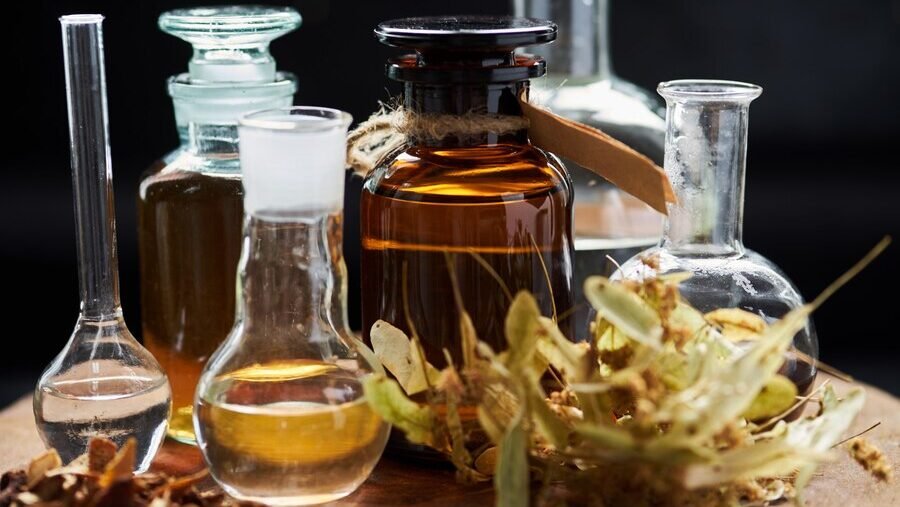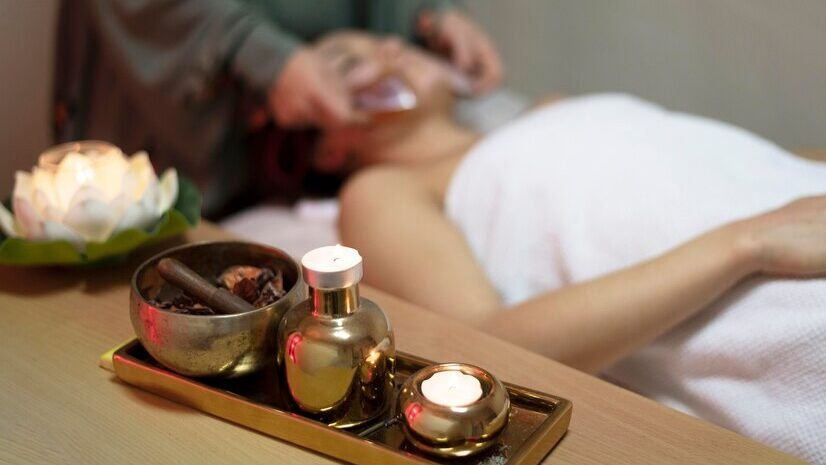Aromatherapy, the therapeutic use of essential oils derived from plants, has gained popularity for its holistic approach to health and well-being. But what exactly makes essential oils effective? Let’s delve into the science behind aromatherapy, exploring how these natural compounds work and their benefits.

Understanding Essential Oils
Essential oils are concentrated extracts obtained from various parts of plants, including flowers, leaves, bark, and roots. Through processes like distillation or cold pressing, these oils capture the plant’s aromatic compounds, which are believed to have therapeutic properties.
How Essential Oils Work
1. Olfactory System Interaction:
- Essential oils release aromatic molecules that stimulate olfactory receptors in the nose.
- These receptors send signals to the limbic system, the part of the brain that regulates emotions, mood, and memory.
- The limbic system influences the release of neurotransmitters like serotonin and endorphins, promoting relaxation and stress relief.
2. Absorption Through the Skin:
- When applied topically, essential oils can be absorbed through the skin.
- They penetrate into the bloodstream and are circulated throughout the body, exerting their therapeutic effects.
- This method is commonly used in massage therapy and skincare products.
3. Direct Effects on Cells and Organs:
- Some essential oils have antimicrobial, anti-inflammatory, or antioxidant properties.
- They can directly affect cellular processes, supporting immune function or reducing inflammation.
- For example, tea tree oil is known for its antibacterial properties, making it useful in skincare and wound healing.
Benefits of Aromatherapy
- Stress Relief: Essential oils like lavender and chamomile promote relaxation and reduce anxiety.
- Improved Sleep: Oils such as cedarwood and bergamot can help induce sleep and enhance sleep quality.
- Mood Enhancement: Citrus oils like orange and lemon can uplift mood and improve mental clarity.
FAQs About Aromatherapy
Q: Are essential oils safe to use?
A: When used correctly, essential oils are generally safe for most people. However, they should be diluted with a carrier oil before applying to the skin and should not be ingested without proper guidance.
Q: Can essential oils replace traditional medicine?
A: Aromatherapy can complement traditional medicine but should not be used as a substitute for medical treatment. Always consult a healthcare professional for serious health conditions.
Q: How do I choose the right essential oil for my needs?
A: Consider your desired effects (e.g., relaxation, energy boost) and personal preferences (e.g., scent preferences). Start with popular oils like lavender or peppermint and experiment to find what works best for you.
Q: Can essential oils be used during pregnancy?
A: Some essential oils are safe during pregnancy, while others should be avoided. Consult with a healthcare provider before using essential oils if you are pregnant or breastfeeding.
Conclusion
Understanding the science behind aromatherapy helps us appreciate its therapeutic benefits and how essential oils can enhance our well-being naturally. Whether you use them for relaxation, sleep improvement, or mood enhancement, incorporating aromatherapy into your daily routine can be a simple yet effective way to support your overall health.

